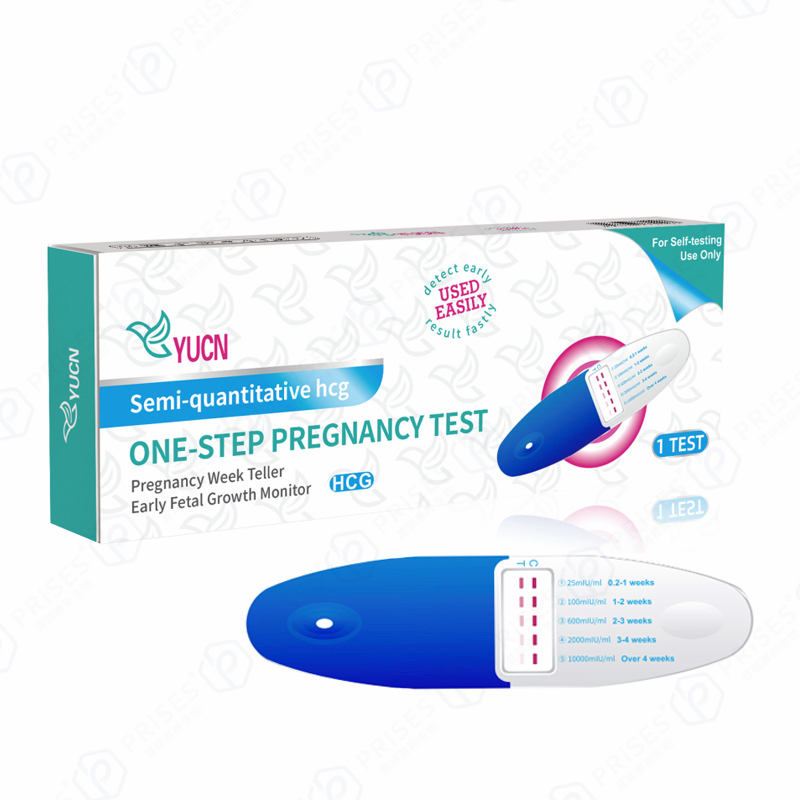ഡിസം . 12, 2024 10:51 Back to list
malaria card test manufacturers
The Landscape of Malaria Card Test Manufacturers
Malaria remains one of the most significant public health challenges globally, particularly in tropical and subtropical regions where the Anopheles mosquito serves as a vector. One of the pivotal advancements in combating this disease has been the introduction and proliferation of malaria rapid diagnostic tests (RDTs), primarily in the form of malaria card tests. These tests are essential for quick diagnosis, enabling timely treatment and reducing transmission rates. This article explores the landscape of malaria card test manufacturers, evaluating their roles, innovations, and the future outlook for malaria diagnostics.
The Importance of Malaria Card Tests
Malaria card tests are immunochromatographic tests that detect specific antigens produced by the malaria parasite in a patient's blood. Their advantages over traditional microscopy include ease of use, the ability to deliver results in a matter of minutes, and the capacity to be used in remote areas with limited healthcare facilities. With the WHO recommending the use of RDTs for the diagnosis of malaria, the demand for reliable and cost-effective tests has surged, prompting numerous manufacturers to enter the market.
Key Manufacturers in the Malaria RDT Market
Several prominent manufacturers have emerged as leaders in the malaria card test industry
. Companies such as SD Biosensor, Abbott, and Bioline are notable players, each contributing unique innovations and technologies.
1. SD Biosensor Based in South Korea, SD Biosensor is recognized for its extensive portfolio of rapid diagnostic tests, including malaria RDTs. Their tests are known for high sensitivity and specificity, and the company invests heavily in research and development to continually enhance the accuracy and reliability of its products.
2. Abbott A global healthcare leader, Abbott has developed the BinaxNOW test, which is a widely used malaria test in various countries. Abbott's products are often used in clinical settings, reflecting their commitment to quality and reliability. Their focus on integrating advanced technology with traditional diagnostics enhances the user experience and improves health outcomes.
3. Bioline A part of the Standard Diagnostics family, Bioline is known for its OnSite malaria test, which can differentiate between Plasmodium falciparum and non-falciparum infections. This differentiation is crucial for treatment, as it informs clinicians of the appropriate therapeutic response.
malaria card test manufacturers

4. CareStart CareStart has made a significant impact with its malaria RDTs that are user-friendly and provide quick results. Their tests are widely used in field settings, reflecting a commitment to accessible healthcare solutions in underserved communities.
5. PODMALARIA This manufacturer focuses on producing high-quality RDTs that meet stringent international standards. Their products have been designed with an emphasis on ease of use and minimal training requirements, making them accessible for use in remote areas.
Innovations and Future Directions
The future of malaria card test manufacturing lies in continued innovation. Manufacturers are now exploring the integration of digital technologies, such as smartphone compatibility, which can facilitate real-time data sharing and tracking of malaria cases. Moreover, advancements in biosensors and nanotechnology are paving the way for more sensitive and rapid detection methods, potentially leading to tests that can not only diagnose malaria but also quantify parasitemia levels.
Another promising avenue is the development of combination tests that can differentiate malaria from other febrile illnesses, such as typhoid fever and dengue. This is essential for effective management in areas where multiple infectious diseases are endemic, ensuring that patients receive the appropriate treatment without delay.
Challenges Facing Manufacturers
Despite the promising landscape, malaria card test manufacturers face several challenges. Issues such as regulatory hurdles, competition from traditional diagnostic methods, and the need to ensure consistent quality across varied production processes can hinder market growth. Moreover, the reliance on end-user education and training is crucial to ensure accurate results, which may not always be achievable in low-resource settings.
Conclusion
The malaria card test manufacturing sector plays a vital role in the global fight against malaria. With leaders in the industry continually innovating and seeking to improve diagnostics, the potential for enhanced disease management is significant. As technology advances and more manufacturers enter the field, the vision of eradicating malaria becomes increasingly attainable, highlighting the importance of sustained investment and research in this essential public health tool.
-
Dengue NS1 Rapid Diagnostic Test Kit
NewsMar.07,2025
-
Dengue NS1 Rapid Diagnostic Test Kit
NewsMar.07,2025
-
Dengue NS1 Rapid Diagnostic Test Kit
NewsMar.07,2025
-
Transferrin Rapid Test Cassette Tumor Marker TF Card
NewsMar.07,2025
-
Malaria Pf Pan Rapid Diagnostic Test Kit
NewsMar.07,2025
-
malaria pf / pan ag rapid test
NewsMar.07,2025

